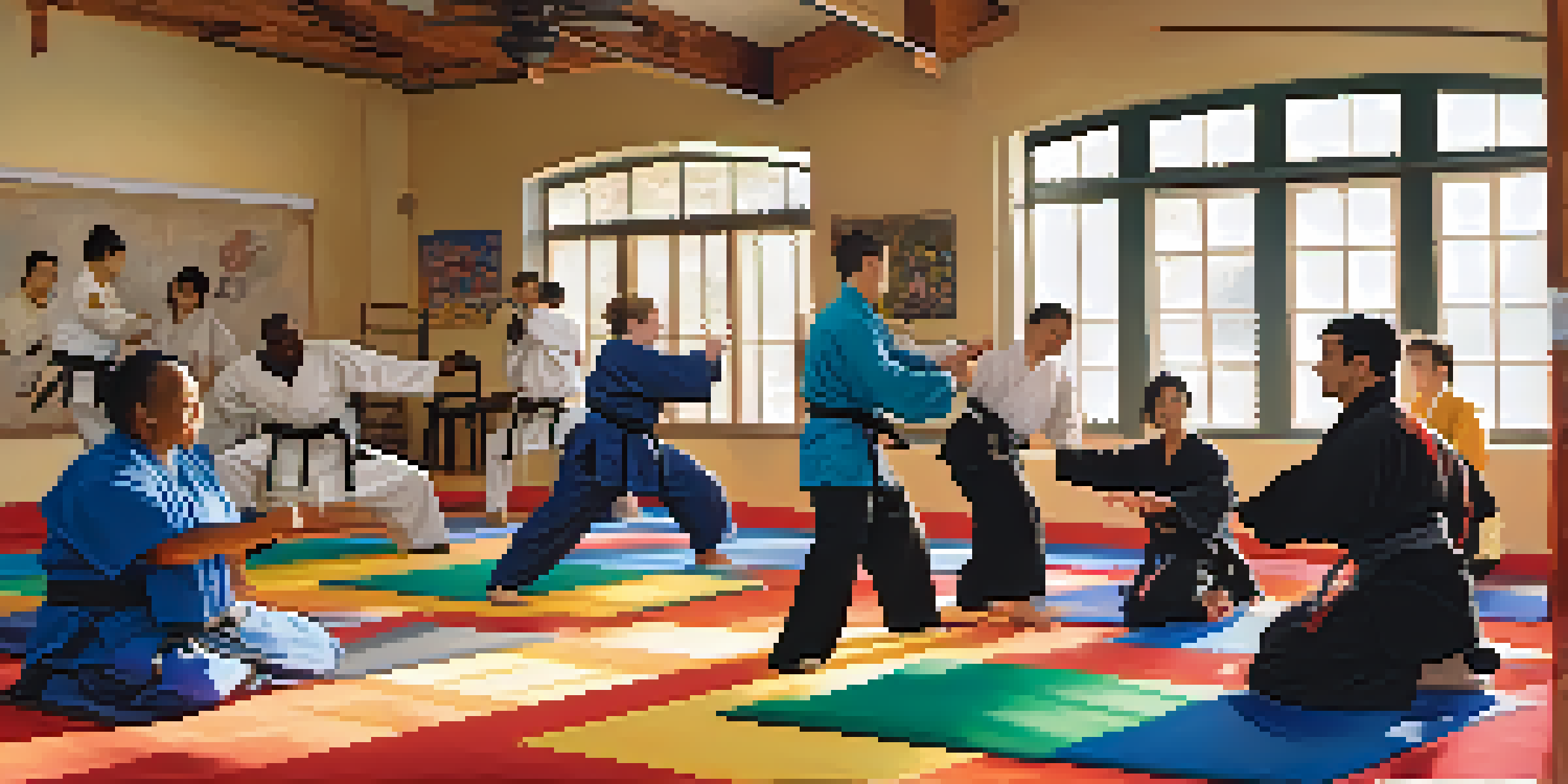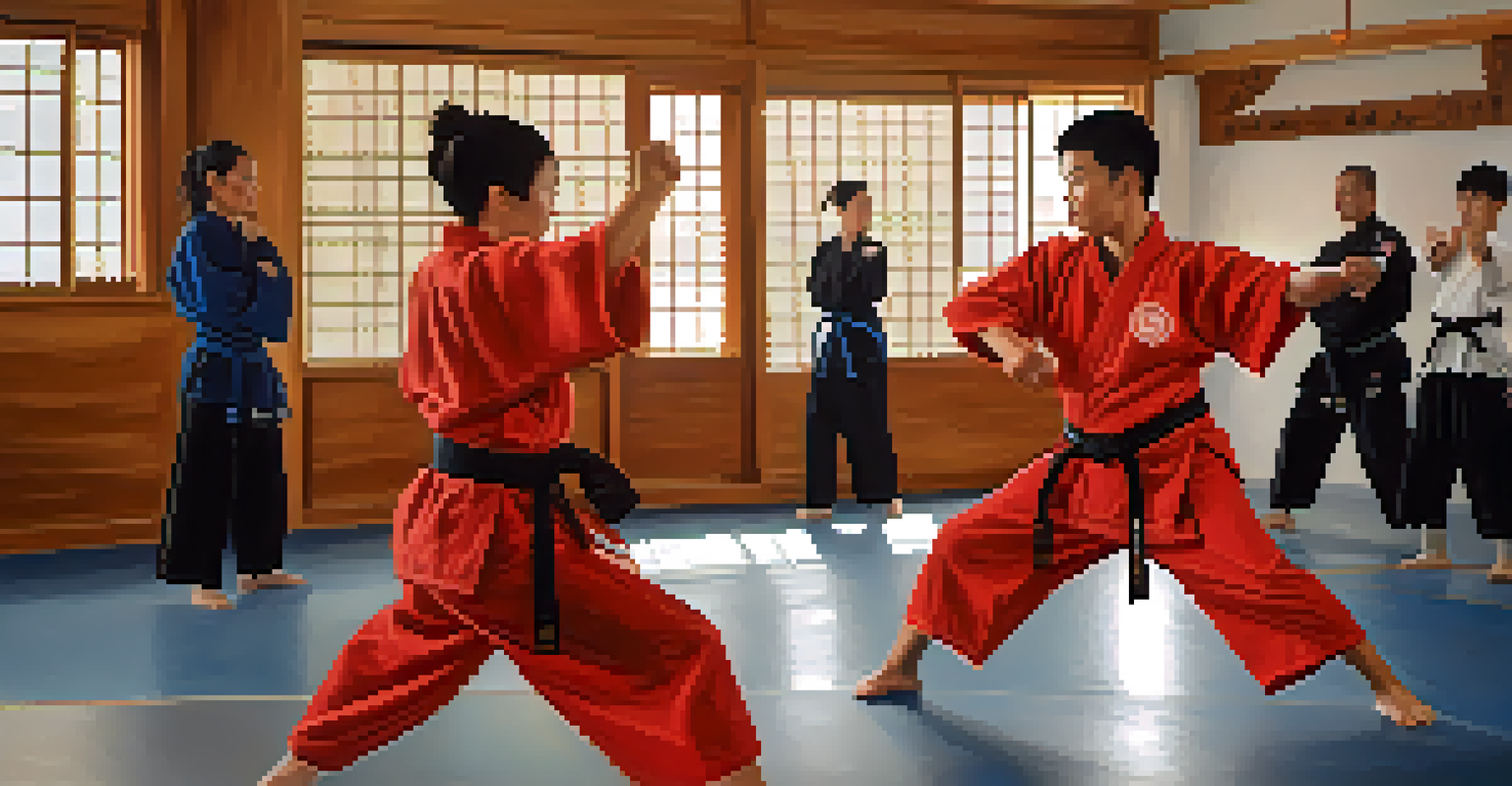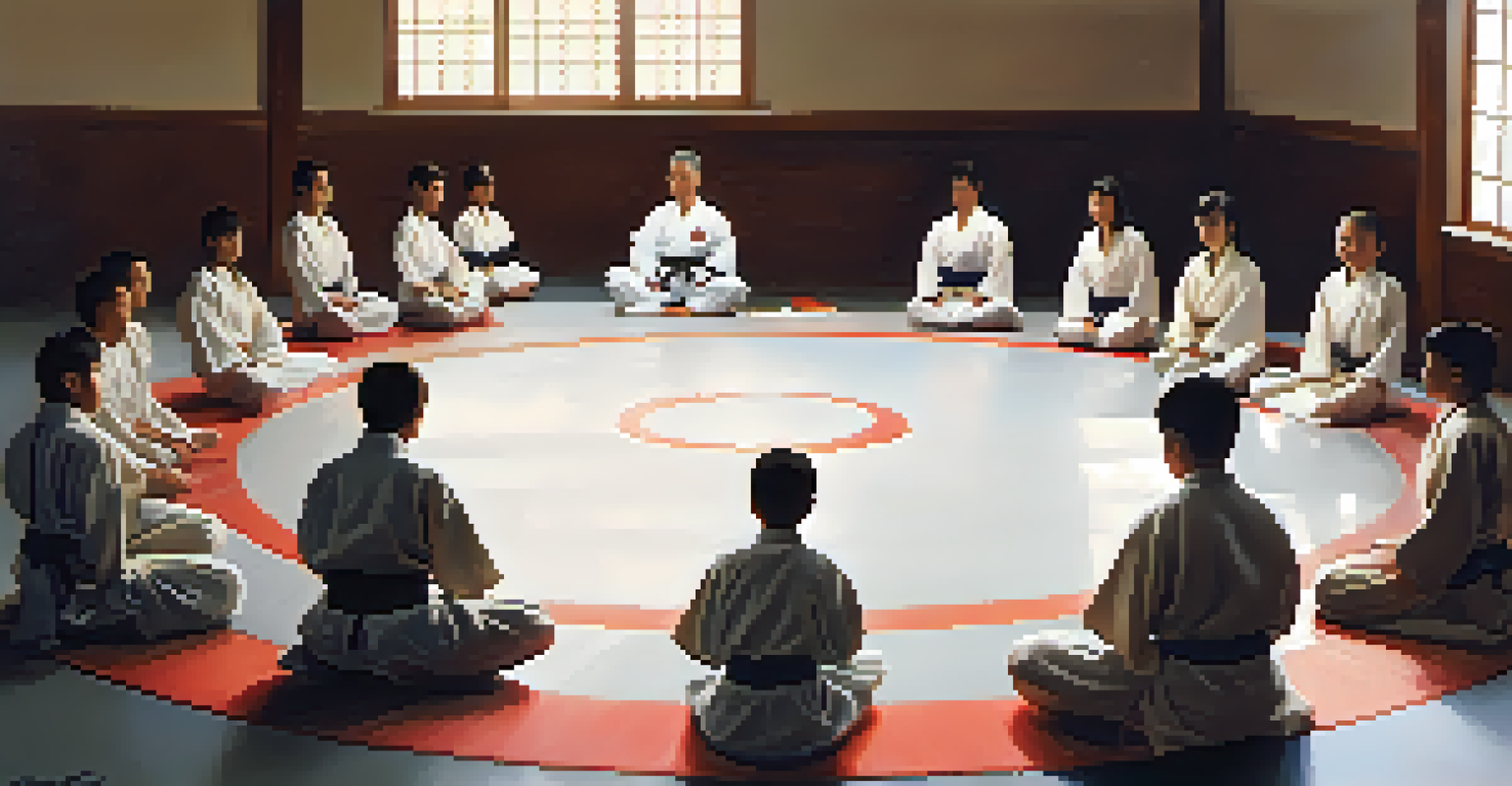Benefits of Martial Arts for Individuals with Disabilities

Martial Arts as a Tool for Confidence Building
Martial arts training can significantly boost self-confidence in individuals with disabilities. By mastering techniques and achieving personal goals, practitioners feel a sense of accomplishment. This newfound confidence often extends beyond the dojo, impacting other areas of their lives.
The greatest weapon against stress is our ability to choose one thought over another.
As students advance in their training, they become more self-assured in their abilities. The supportive environment of martial arts classes fosters positive reinforcement, encouraging individuals to push their boundaries. For many, this journey is about more than just physical skill; it's about believing in themselves.
Moreover, as they learn to defend themselves, participants gain a sense of empowerment. This empowerment can be transformative, helping them navigate daily challenges with a stronger sense of self-worth.
Physical Fitness and Improved Health Outcomes
Engaging in martial arts promotes physical fitness, which is crucial for everyone, including individuals with disabilities. The practice involves a variety of movements that enhance strength, flexibility, and cardiovascular health. Regular participation can lead to improved physical well-being and mobility.

Martial arts training also emphasizes body awareness and coordination, which can be particularly beneficial for individuals with certain physical challenges. As they practice, students often notice improvements in their balance and agility. Over time, these enhancements contribute to a more active lifestyle.
Boosting Confidence Through Training
Martial arts training enhances self-confidence in individuals by helping them master techniques and achieve personal goals.
Additionally, being physically active can help reduce the risk of chronic health conditions. For individuals with disabilities, maintaining a healthy body can lead to a better quality of life, allowing for greater independence and participation in community activities.
Social Interaction and Building Community
Martial arts classes provide a unique platform for social interaction, which can be especially valuable for individuals with disabilities. They create a sense of belonging and community, allowing participants to connect with others who share similar interests. This social aspect can help combat feelings of isolation and loneliness.
Strength does not come from physical capacity. It comes from an indomitable will.
As students train together, they develop friendships that foster mutual support and understanding. The martial arts environment encourages camaraderie, where everyone is working towards their personal best, regardless of their starting point. These relationships can be a source of motivation and encouragement.
Moreover, instructors often emphasize respect and teamwork, reinforcing positive social skills. Participants learn to communicate effectively, collaborate, and celebrate each other's successes, which helps build a strong, supportive community.
Enhanced Focus and Mental Discipline
Learning martial arts requires a level of focus and concentration that can benefit individuals with disabilities. The structured environment of martial arts training teaches students to concentrate on techniques, routines, and their own movements. This focus can translate into improved attention spans in other areas of life.
Practicing martial arts also encourages mental discipline, as students must regularly practice and refine their skills. This discipline fosters a sense of routine and commitment, which can be particularly beneficial for those looking for structure in their lives. Over time, this enhanced focus can lead to better performance in school or work settings.
Promoting Physical Fitness
Engaging in martial arts improves physical fitness and health outcomes, benefiting individuals by enhancing strength, flexibility, and mobility.
Additionally, martial arts often incorporate mindfulness practices, such as breathing techniques, which can help individuals manage stress and anxiety. This holistic approach to training nurtures both the body and mind, promoting overall mental well-being.
Self-Defense Skills and Personal Safety
One of the most significant benefits of martial arts is the self-defense skills it teaches. Individuals with disabilities often face unique challenges when it comes to personal safety, and martial arts training equips them with the tools to protect themselves. Learning practical self-defense techniques can enhance their sense of security in various situations.
Beyond physical techniques, martial arts also emphasize awareness and avoidance strategies. Practitioners learn to recognize potential threats and develop skills to navigate challenging situations effectively. This proactive approach to personal safety can empower individuals to feel more in control of their surroundings.
Furthermore, the confidence gained from learning self-defense can reduce anxiety about potential threats. When students feel capable of protecting themselves, it positively impacts their overall quality of life, allowing them to engage more freely in their communities.
Coping Mechanisms for Stress and Anxiety
Martial arts training can serve as an effective coping mechanism for stress and anxiety, which can be prevalent among individuals with disabilities. The physical activity involved releases endorphins, natural mood lifters that can help alleviate feelings of stress. Regular practice provides a constructive outlet for emotions.
Additionally, the structured nature of martial arts classes offers a sense of routine that can be comforting. This predictability helps individuals manage their time and expectations, leading to a more balanced lifestyle. For many, this routine becomes a vital part of their self-care strategy.
Building Community and Support
Martial arts classes foster social interaction and community, allowing individuals to develop friendships and mutual support while learning essential skills.
Moreover, martial arts often incorporates relaxation techniques, such as deep breathing and meditation, which further promote mental wellness. These practices teach individuals how to calm their minds and reduce anxiety, equipping them with tools to handle life's challenges more effectively.
Fostering Independence and Personal Growth
Engaging in martial arts can significantly foster independence in individuals with disabilities. As they learn and master new skills, they develop a sense of autonomy that translates into other aspects of their lives. This growth in independence can lead to increased self-sufficiency and a willingness to take on new challenges.
Martial arts also encourages personal growth by pushing individuals to step outside their comfort zones. Whether it's sparring with a partner or performing in a demonstration, these experiences build resilience. Facing and overcoming fears in a supportive environment can be empowering and life-changing.

Furthermore, the goal-oriented nature of martial arts encourages individuals to set and achieve personal goals. This focus on setting milestones helps build a growth mindset, where challenges are viewed as opportunities for development rather than obstacles.